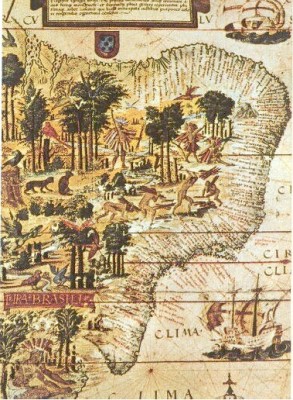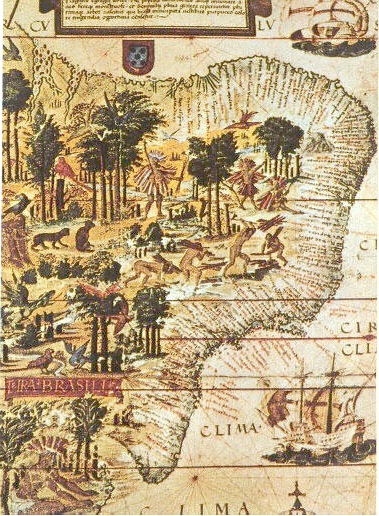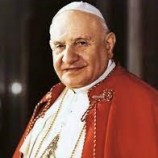 When the European first disembarked onto today’s Brazilian coast, the indigenous peoples did not had lands. Actually, the natives hadn’t even imagined that it was possible to “have” a piece of land. The territory is what they “had”, involving them in its magnificent offerings and its perilous threats…
When the European first disembarked onto today’s Brazilian coast, the indigenous peoples did not had lands. Actually, the natives hadn’t even imagined that it was possible to “have” a piece of land. The territory is what they “had”, involving them in its magnificent offerings and its perilous threats…
The European, early in the process of capitalization, arrived at these shores with an official document which had previously divided the land between the Portuguese and the Spaniards. If it were not to take possession of the land, never would they have withstood the fury of the Atlantic Ocean. The unmistakable sign of taking possession was the gesture to give a “name” to the land. To give a name is to posses. A father gives a name to his son. A child gives a name to his puppy: the dog is mine! The land of Santa Cruz…
To record this claim, we produced maps. The Brazilian Indian did not have maps. While living together with rivers, mountains, plains and streams, never had it passed through their mind the idea to register in coconut bark the image of their hinterland. The Europeans however were prepared to pay a high price for any geographical chart, as rudimentary and arbitrary it may be, scribbled by the first explorers of the Austral world.
After the claiming of the land with flags held up high on posts as testimonies of authority, they marked a cross on the map: this piece is mine. The next immediate step consisted of raising a fence to mark the limits between what has been claimed and beyond, making the wall and the fence the symbol of alienation, robbing the land of its liberty.
Inside of a fenced area, freedom ceases to exist. The bull is closed in. Like chickens in a coop. The owner is held to his holdings: he is the possessor, without knowing it he is then made bound to his possession…
Outside of the fence, the Indian continued his nomadic life, errant at every corner, collecting coconut and guava, hunting deer and armadillos, fishing for dourado and pacu fish. But already he is not as free as he was, because the high palisades forbid him to access owned areas. His cosmos shrank.
While in the very 21st century, the rights of an Indian to own a few acres of land are still argued for. It appears that this isn’t quite what they wish for. Deep down at their soul level, they must dream of another universe, where Tupã is the only holder of the land, but generous as He is, shares all of His riches with the various tribes that wander across the physical plane, no matter what urucum designs they drawl onto their bodies.
In the end, everyone dies. All should give way to the land. And the Earth, always our friend, forgets that it was overtaken and opens her lap to envelope into her arms the Indian and the European.
And freedom is revived.
Related Articles
















